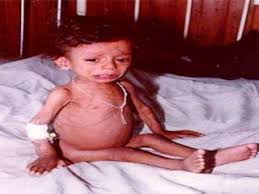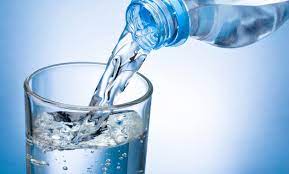Dehydration Symptoms: How to Recognize the Signs of Insufficient Hydration
Dehydration is a serious and potentially life-threatening condition that occurs when the body loses more fluids than it takes in. When the body does not have enough water, it can cause numerous adverse effects, such as dizziness, fatigue, headaches, confusion and even organ damage if left untreated. It can be caused by a variety of factors such as excessive sweating during physical activity or heat exhaustion, frequent urination due to diabetes or kidney disease, vomiting or diarrhea from illness or infection, or inadequate fluid intake due to poor diet. To avoid dehydration it is important to stay hydrated by drinking plenty of fluids throughout the day and maintaining a healthy lifestyle with regular exercise and adequate nutrition. Please keep reading for details on the following topics:
How dehydration is caused
Consequences of dehydration
How dehydration is manifested

HOW DEHYDRATION IS CAUSED
It is caused by an imbalance between the body’s water intake and output. Several factors can contribute to this imbalance:
- Not drinking enough fluids, especially water, can lead to dehydration. This can occur due to forgetfulness, lack of access to clean water, or simply not feeling thirsty.
- Excessive Fluid loss that can occur through various means such as sweating, urination, vomiting, or diarrhea. This can happen during physical activity, hot weather, illness, or certain medical conditions.
- Hot and dry environments can increase the body’s need for fluids, leading to dehydration if adequate hydration is not maintained. High altitudes can also increase fluid loss through respiration.
- Certain medical conditions such as diabetes, kidney disease, and gastrointestinal disorders can affect fluid balance in the body, increasing the risk of dehydration.
- Some medications, such as diuretics, laxatives, and certain chemotherapy drugs, can increase urine output or cause fluid loss through other mechanisms, contributing to dehydration.
- Infants, young children, and older adults are particularly susceptible to dehydration due to their smaller body size, higher metabolic rate, and decreased ability to regulate fluid balance.
-
Alcohol and caffeinated beverages have diuretic effects, increasing urine production and contributing to fluid loss if consumed in excess.
COMPLICATIONS OF DEHYDRATION
Complications can range from mild to severe, depending on the extent of fluid loss and the individual’s overall health. Some potential complications include:
- Electrolyte Imbalance: Dehydration disrupts the balance of electrolytes (such as sodium, potassium, and chloride) in the body, which are essential for proper cellular function. Electrolyte imbalances can lead to muscle cramps, weakness, irregular heartbeats, and other cardiovascular issues.
- Heat-related Illnesses: In hot weather or during strenuous physical activity, dehydration can increase the risk of heat exhaustion or heatstroke. These conditions can cause symptoms such as dizziness, rapid heartbeat, nausea, confusion, and in severe cases, loss of consciousness.
- Kidney Problems: It can strain the kidneys and reduce their ability to filter waste products from the blood. This can lead to kidney stones, urinary tract infections, or even kidney failure if left untreated.
- Urinary and Digestive Issues: Reduced fluid intake can concentrate urine, leading to urinary tract infections or bladder stones. Dehydration can also slow down digestion and cause constipation or exacerbate existing gastrointestinal issues.
- Cognitive Impairment: It can affect cognitive function and mental clarity, leading to symptoms such as confusion, irritability, and difficulty concentrating. In severe cases, dehydration may contribute to delirium or loss of consciousness.
- Seizures: Severe dehydration can disrupt the balance of electrolytes in the brain, increasing the risk of seizures, particularly in vulnerable individuals such as young children or older adults.
- Hypovolemic Shock: In extreme cases, the body may not have enough fluid to maintain adequate blood volume and circulation. This can lead to hypovolemic shock, a life-threatening condition characterized by low blood pressure, rapid heartbeat, cold and clammy skin, and unconsciousness.
-
Death: Although rare, untreated severe dehydration can be fatal, especially in vulnerable populations such as infants, elderly individuals, or those with pre-existing health conditions.
HOW DEHYDRATION IS MANIFESTED
This is manifested through various physical and physiological symptoms, which can vary in severity depending on the extent of fluid loss and individual factors. Common manifestations include:
- Thirst: One of the earliest signs is a sensation of thirst, prompting the individual to drink fluids to replenish lost water.
- Dry Mouth and Eyes: Reduced saliva production can result in a dry or sticky sensation in the mouth, while insufficient tear production can lead to dry, irritated eyes.
- Decreased Urination: It can cause a decrease in urine output, leading to dark-colored urine that is more concentrated than usual.
- Dizziness and Lightheadedness: Reduced blood volume and decreased blood pressure due to dehydration can result in feelings of dizziness, lightheadedness, or faintness, especially when standing up quickly.
- Fatigue and Weakness: It can lead to feelings of fatigue, weakness, and lethargy as the body struggles to function optimally without adequate fluid intake.
- Headaches or migraines are caused due to changes in blood flow and oxygen delivery to the brain.
- Muscle Cramps: Electrolyte imbalances resulting from dehydration can lead to muscle cramps, particularly in the legs and abdomen.
- Dry Skin: Dehydrated skin may appear dry, tight, or flaky, and may lack elasticity or resilience.
- Sunken Fontanelles in Babies: In infants, dehydration may cause the soft spots on the baby’s head (fontanelles) to appear sunken or depressed.
-
Very Concentrated Urine: Severe dehydration can result in highly concentrated urine with a strong odor and deep yellow or amber color.
TREATMENT FOR DEHYDRATION

Treatment involves replenishing lost fluids and electrolytes to restore hydration levels in the body such as:
- Drink Fluids: Encourage the individual to drink plenty of fluids, such as water, oral rehydration solutions (ORS), clear broths, or diluted fruit juices. Sipping small amounts of fluid frequently may be more tolerable than trying to drink large quantities at once.
- Rehydrate with Oral Rehydration Solutions (ORS): ORS solutions contain a precise balance of electrolytes (such as sodium, potassium, and glucose) that help the body absorb water more effectively. These solutions are especially beneficial for individuals with moderate to severe dehydration, such as those experiencing vomiting or diarrhea.
- Avoid Caffeine and Alcohol: Caffeinated beverages and alcohol can exacerbate the condition by increasing urine output. Encourage the individual to avoid or limit consumption of these beverages until hydration levels are restored.
- Eat Hydrating Foods: Offer foods with high water content, such as fruits (e.g., watermelon, oranges), vegetables (e.g., cucumber, celery), and soups. These foods can contribute to fluid intake and provide additional nutrients and electrolytes.
- Rest and Avoid Strenuous Activity: Encourage the individual to rest and avoid strenuous physical activity until hydration levels are restored. Overexertion can further deplete fluids and electrolytes and delay recovery.
- Use Cool Compresses: Applying cool compresses or taking a cool bath can help alleviate symptoms such as heat-related discomfort, fever, or overheating associated with dehydration.
- Monitor Symptoms: Keep a close eye on the individual’s symptoms and hydration status. If symptoms persist or worsen despite efforts to rehydrate, seek medical attention promptly.
-
Seek Medical Attention for Severe Dehydration: In cases of severe dehydration, particularly if accompanied by symptoms such as rapid heartbeat, confusion, fainting, or inability to keep fluids down, seek medical attention immediately. Intravenous (IV) fluids may be necessary to rapidly rehydrate the body and prevent complications.
WHEN TO SEEK URGENT MEDICAL CARE
Seek urgent medical care for dehydration if any of the following signs or symptoms are present:
- Severe Thirst: Persistent, extreme thirst that is difficult to quench despite drinking fluids may indicate severe dehydration.
- Decreased Urination: If urine output is significantly reduced or absent for several hours, especially in infants or young children, it could signal severe dehydration.
- Dark-Colored Urine: Urine that is dark yellow, amber, or brownish in color may indicate concentrated urine due to dehydration.
- Dizziness or Fainting: Feeling dizzy, lightheaded, or faint, particularly when standing up, can be a sign of dehydration and may indicate decreased blood volume and blood pressure.
- Rapid Heartbeat: A rapid or irregular heartbeat (tachycardia or palpitations) can occur as a result of dehydration and may indicate an underlying imbalance in electrolytes.
- Confusion or Irritability: Severe dehydration can affect cognitive function and mental clarity, leading to confusion, irritability, or changes in behavior.
- Sunken Fontanelles in Babies: In infants, a sunken or depressed soft spot on the baby’s head (fontanelle) can indicate dehydration and requires immediate medical attention.
- Dry Mouth and Eyes: Severe dehydration may result in a dry or sticky sensation in the mouth and dry, sunken eyes.
- Inability to Keep Fluids Down: If an individual is unable to tolerate fluids due to persistent vomiting or diarrhea, it can lead to rapid dehydration and requires medical intervention.
- Signs of Heat Exhaustion or Heatstroke: Symptoms such as nausea, vomiting, headache, confusion, rapid breathing, or elevated body temperature may indicate heat-related illness and require immediate medical attention, especially in hot weather.
- Weakness or Fatigue: Severe dehydration can cause extreme weakness, lethargy, or exhaustion that interferes with normal daily activities.
If you or someone else is experiencing any of these symptoms, seek urgent medical care. Delaying treatment can lead to complications and may worsen the condition. It’s important to rehydrate promptly and, if necessary, receive intravenous fluids and electrolytes under medical supervision.
Disclaimer: The information provided in this content is for general informational purposes only. It is not intended as medical or healthcare advice, diagnosis, or treatment. Always seek the advice of a qualified healthcare professional with any questions you may have regarding a medical condition or healthcare decisions.

